RARE! WWII August 1944 FBI WANTED POSTER German Soldier Prisoner of War (POW) Franz Bacher
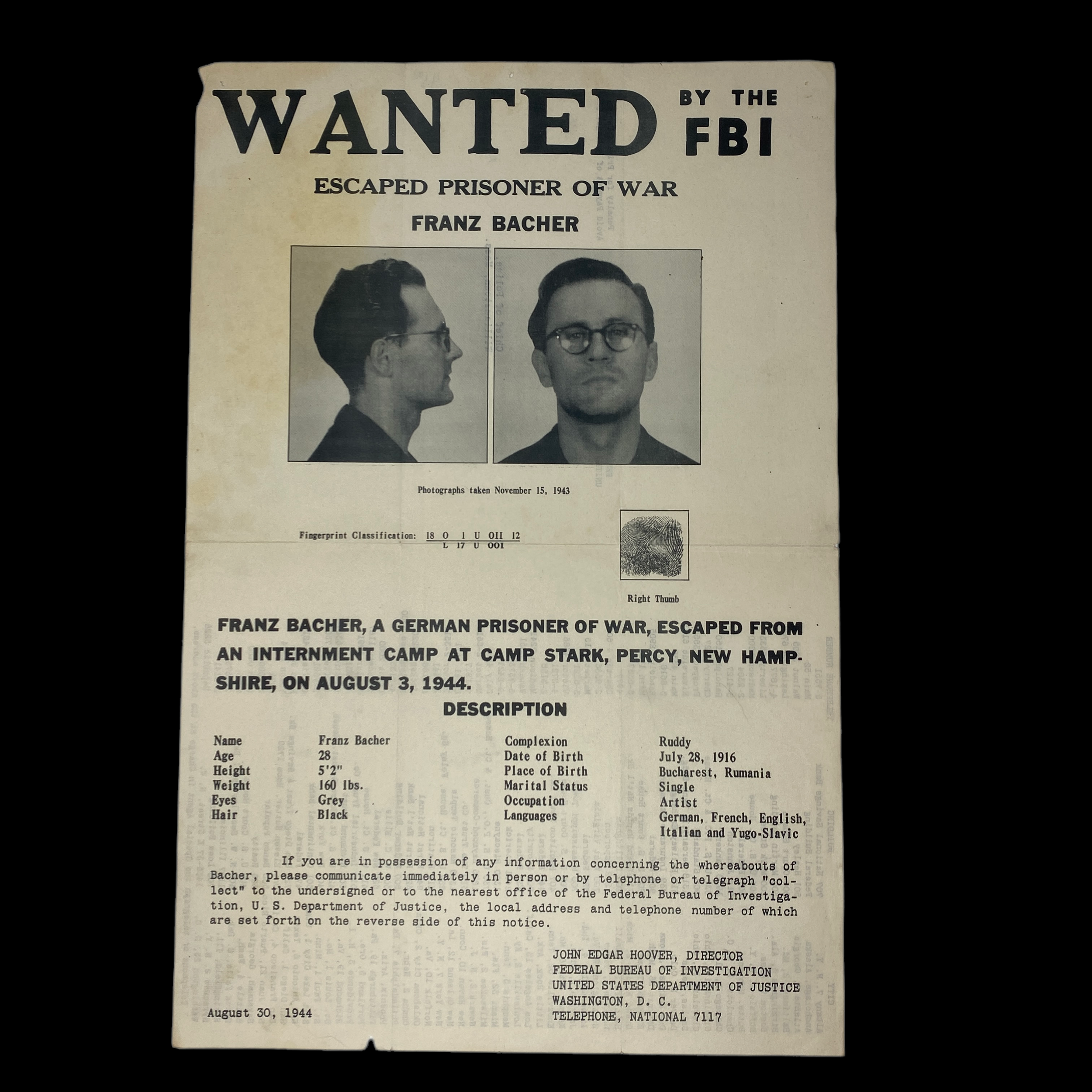
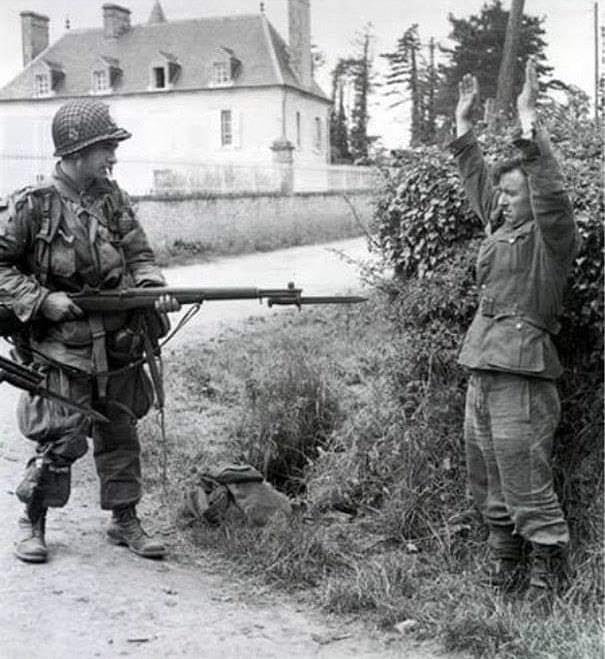
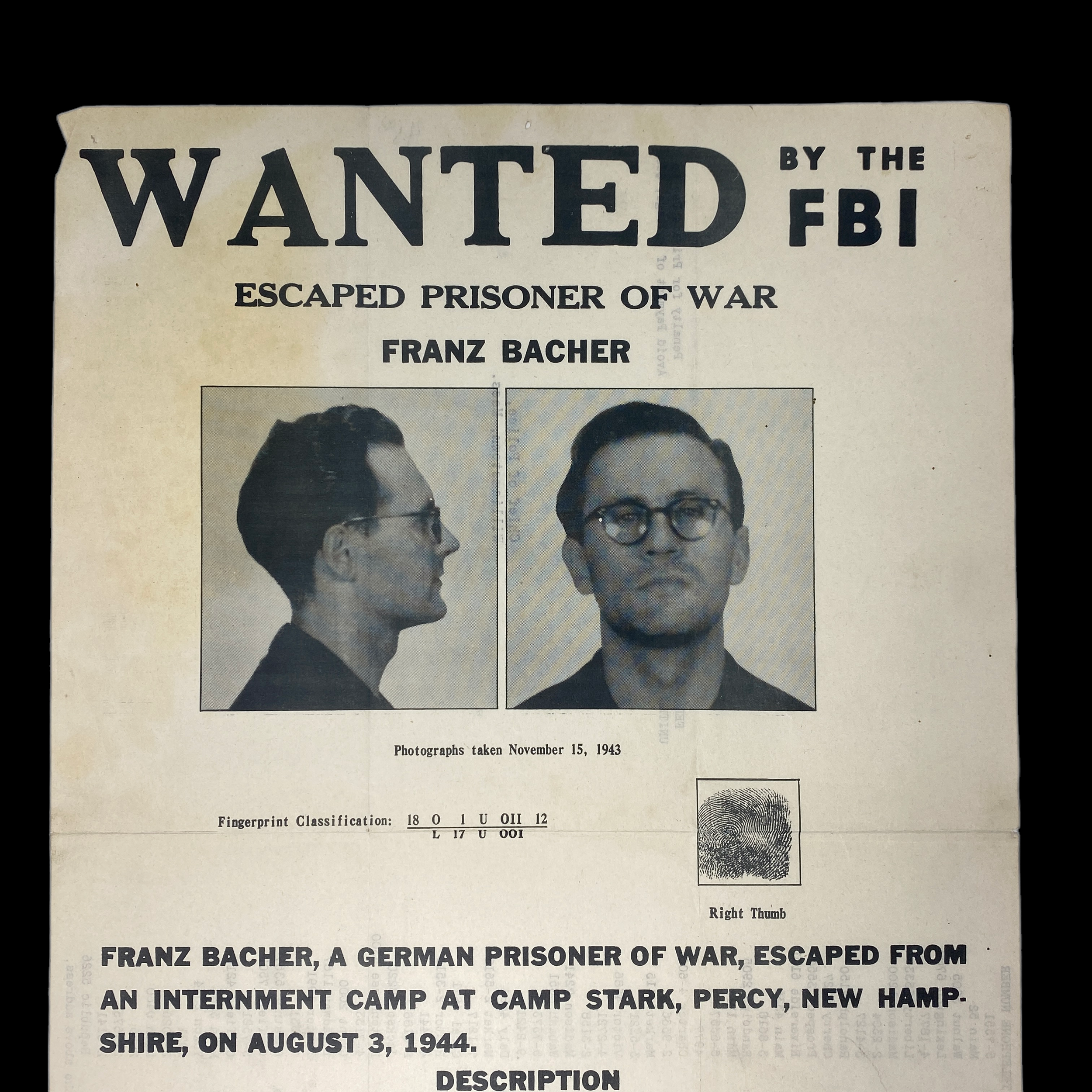
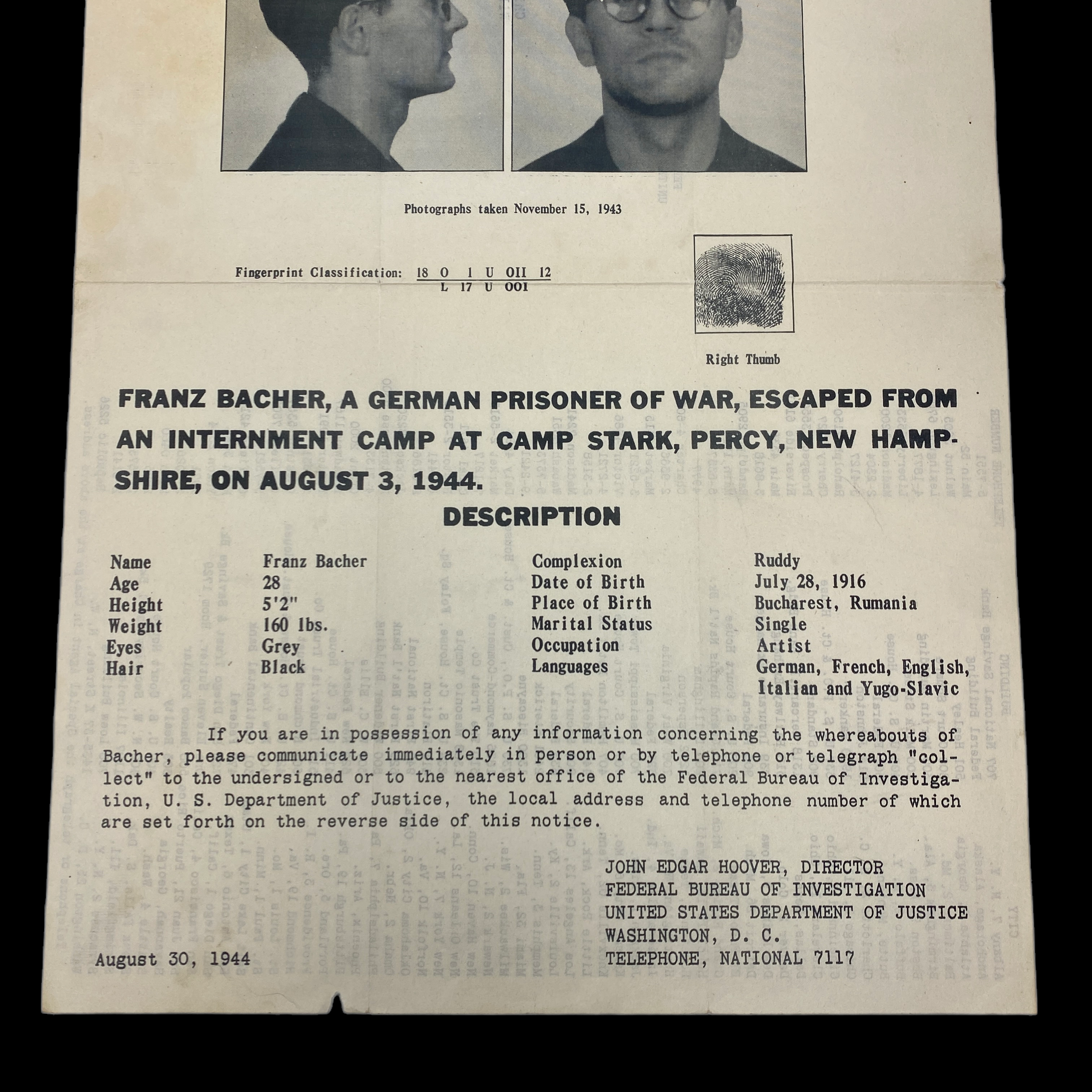
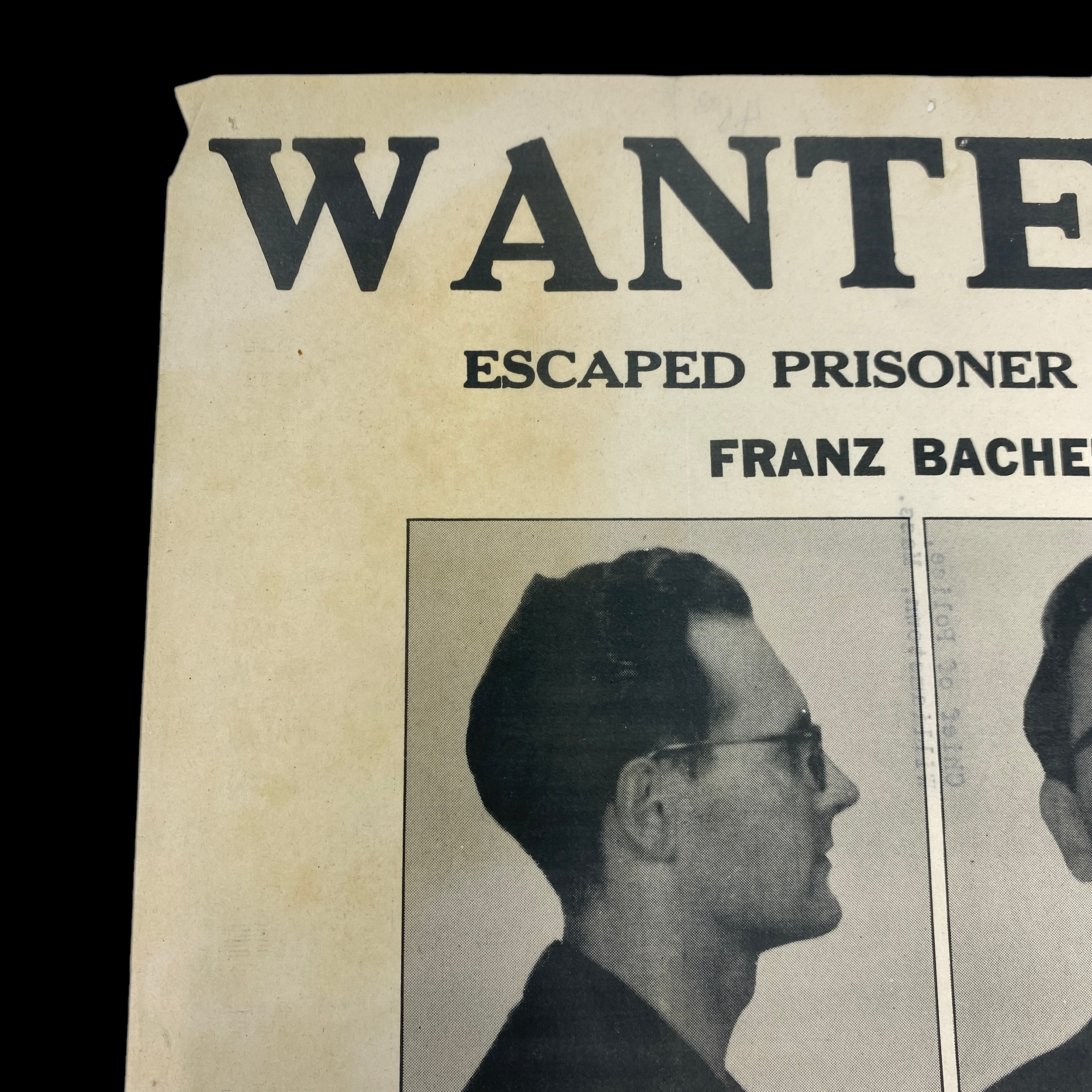
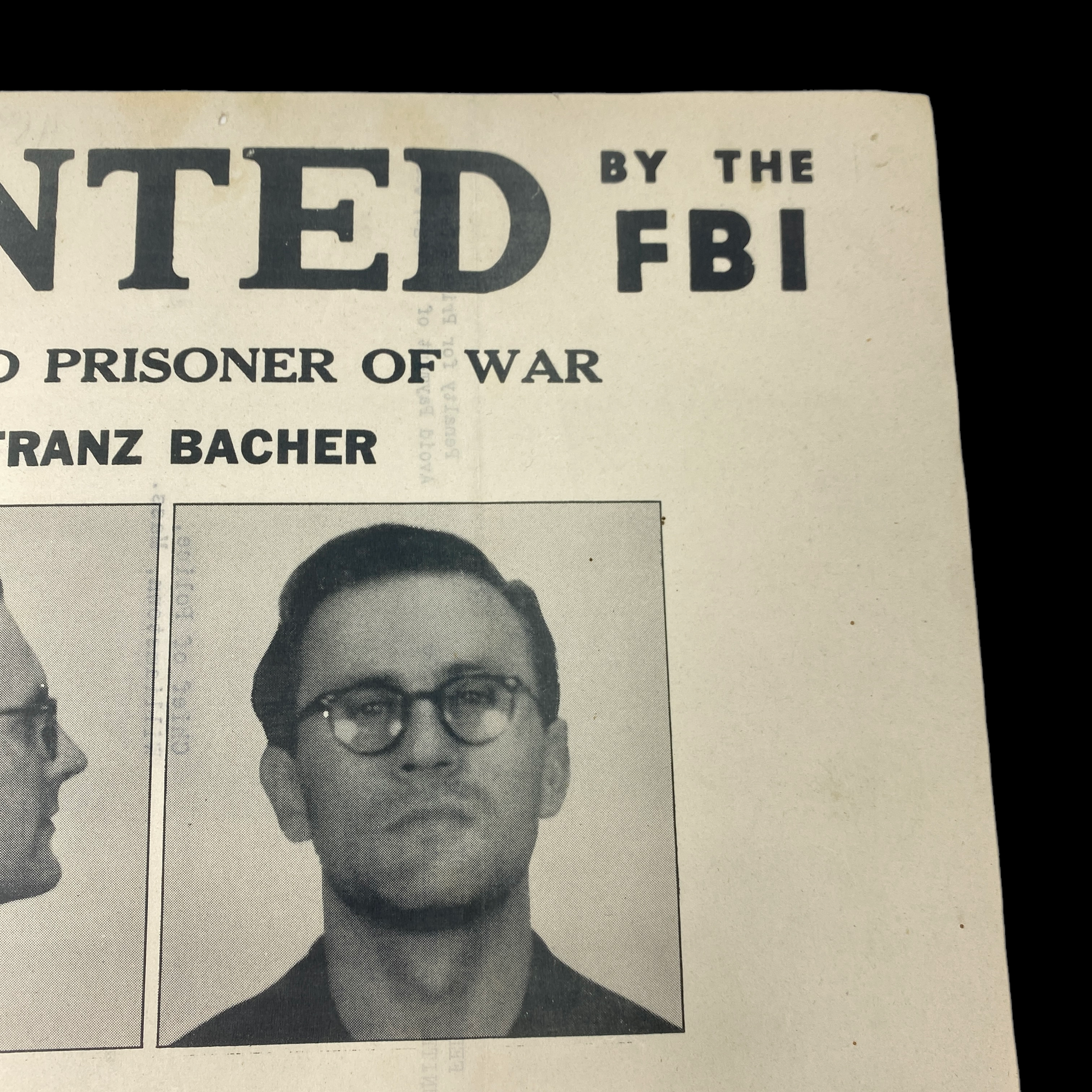
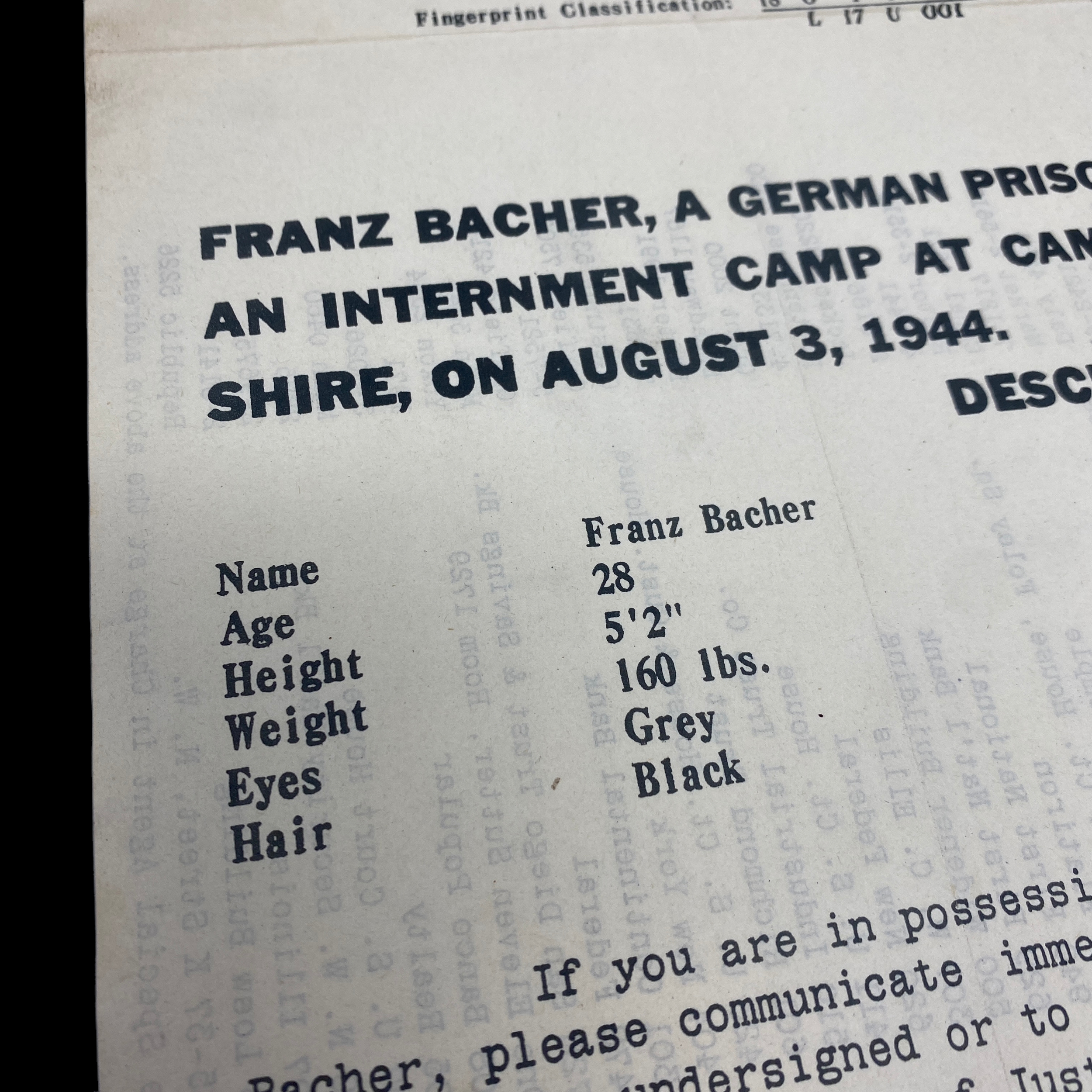
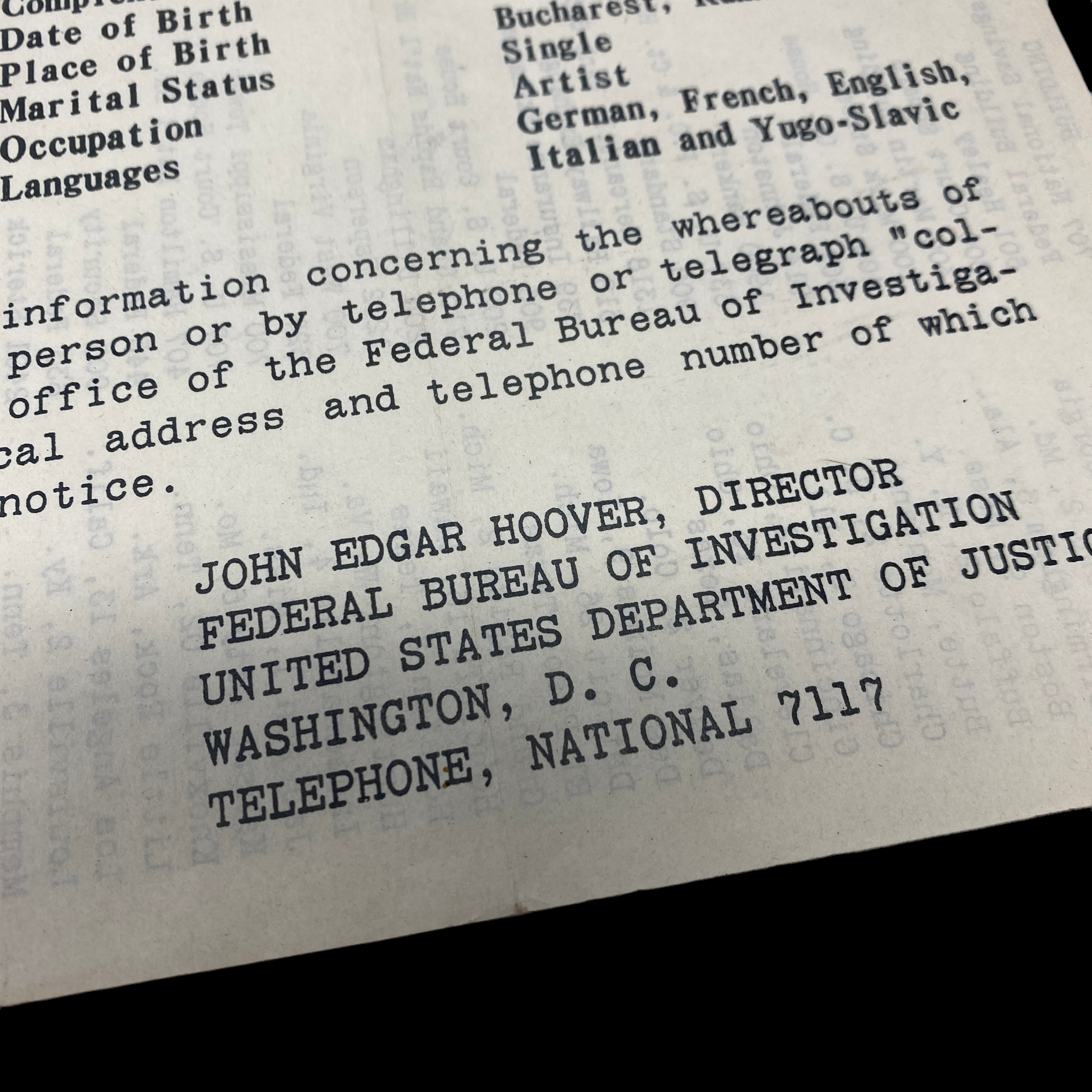


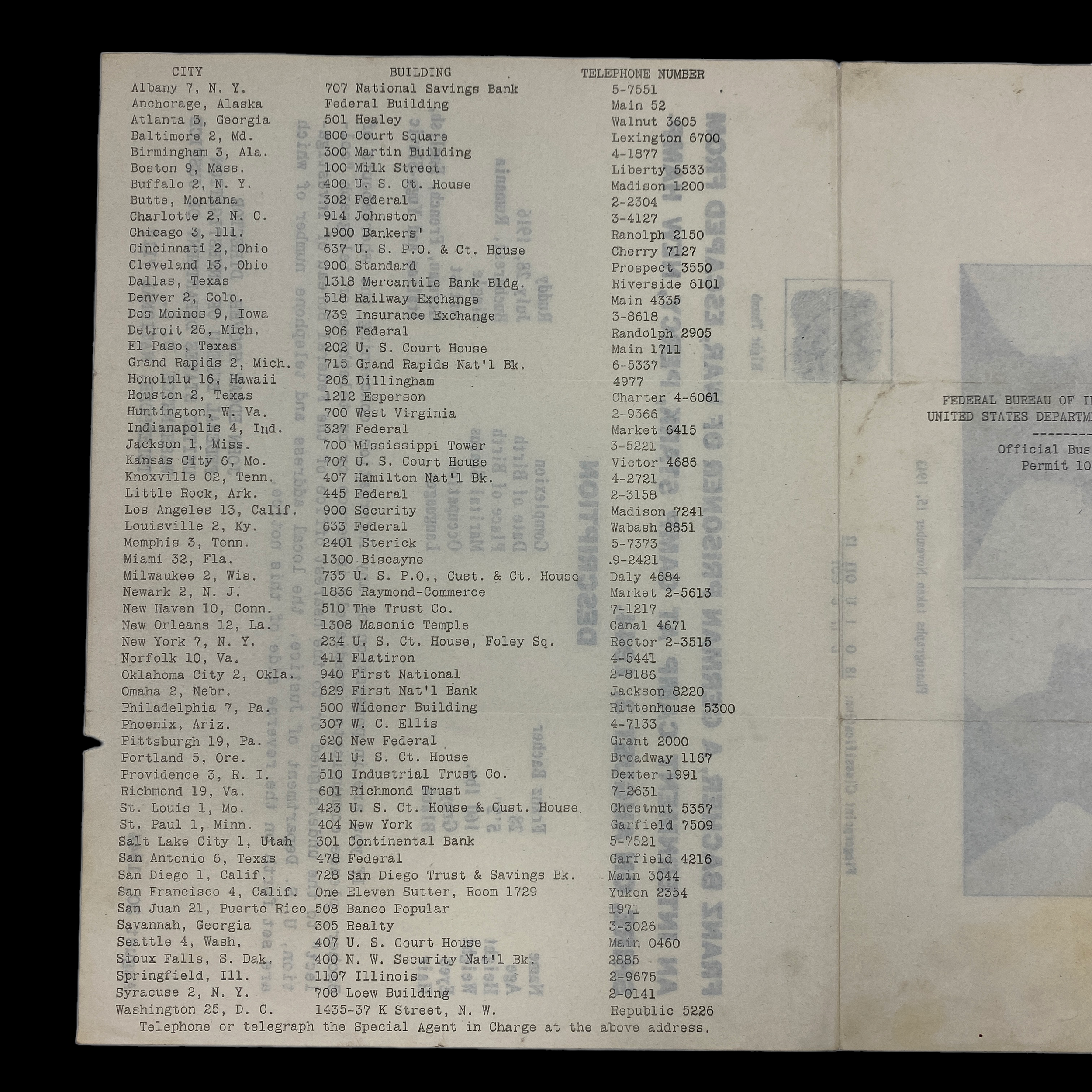
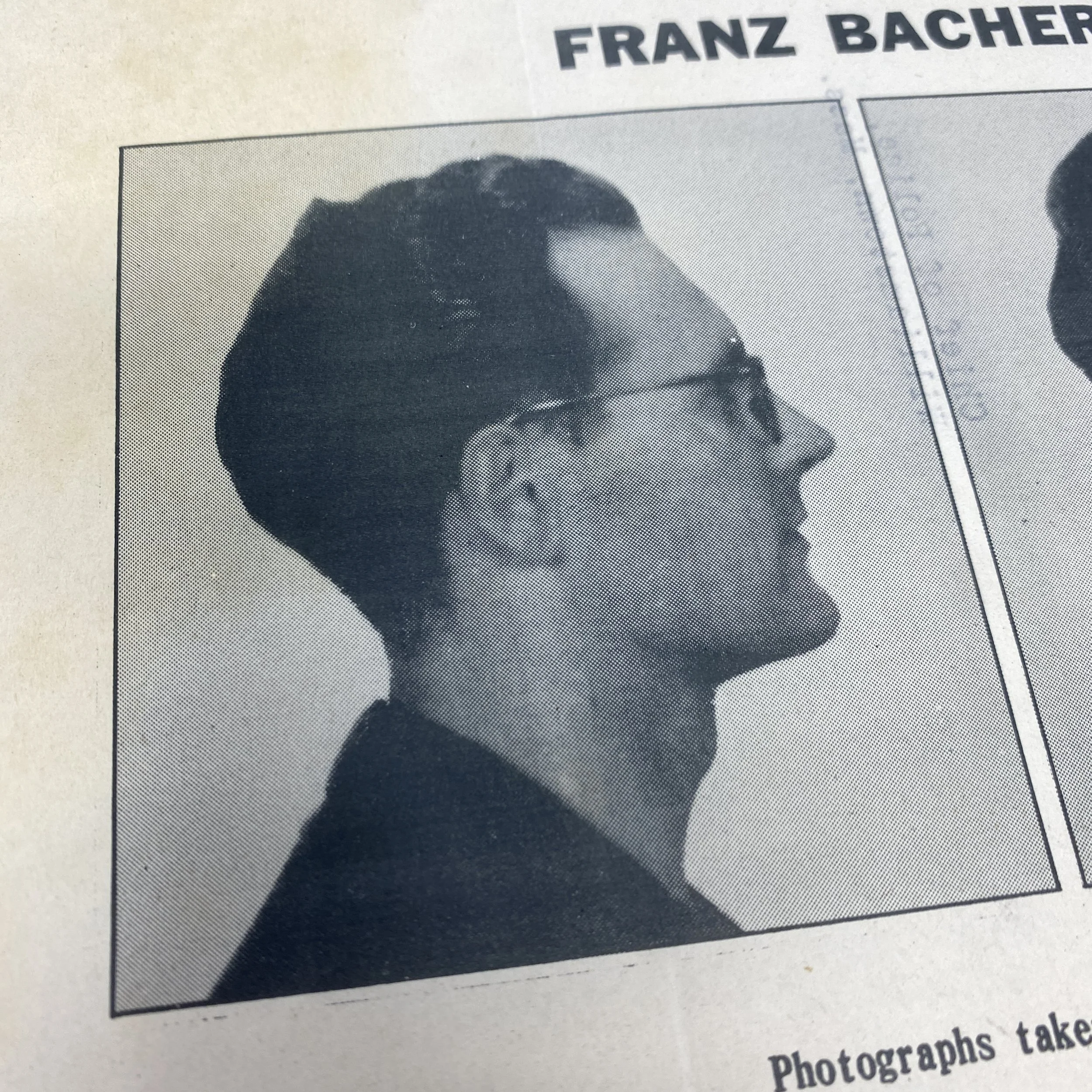
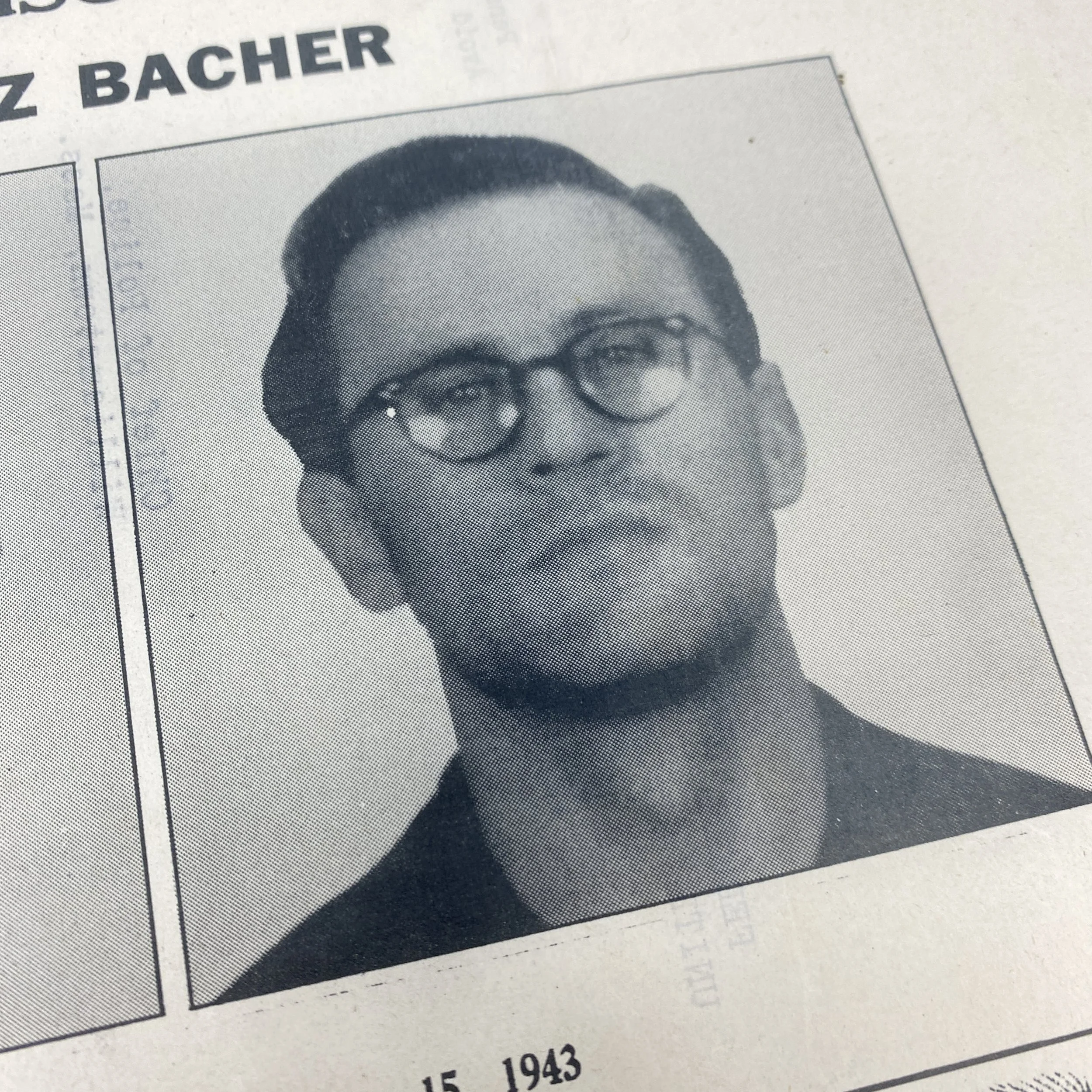
RARE! WWII August 1944 FBI WANTED POSTER German Soldier Prisoner of War (POW) Franz Bacher
Comes with hand-signed C.O.A.
*Less than 1% of all German prisoners of war in America attempted to escape, however—about half the rate of Italian prisoners and less than the rate in the civilian prison system — and most were unsuccessful. The likelihood of an escapee returning to their forces overseas was very remote; the wish to avoid boredom was the reason most often given by those who attempted to escape, often hoping to reach Argentina. POW’s who died during escape attempts usually received military funerals with US government-provided German flags.
This incredible and museum-grade artifact is a wonderfully preserved original F.B.I. WANTED POSTER for an escaped German soldier prisoner of war (POW) named Franz Bacher. On the poster is states that this German POW escaped from an internment camp at Camp Stark, New Hampshire on August 3rd, 1944. This poster was printed almost a month following his escape.
This WANTED POSTER was printed and constructed by the FBI and is dated August 30, 1944. This is a large-sized WANTED P.O.W. POSTER that includes information about the German soldier’s known languages, fingerprints, occupations, and physical completion. The bottom of the poster is marked under authorization by John Edgar Hoover, Director of the Federal Bureau of Investigations.
Members of the German military were interned as prisoners of war in the United States during World War I and World War II. In all, 425,000 German prisoners lived in 700 camps throughout the United States during World War II.
After the United States entered World War II in 1941, the government of the United Kingdom requested American help with housing prisoners of war due to a housing shortage in Britain, asking for the US to take 175,000 prisoners. The United States agreed to house them, although it was not prepared. Its military had only brief experience with a limited POW population in the last world war, and was unprepared for basic logistical considerations such as food, clothing and housing requirements of the prisoners. Almost all German-speaking Americans were engaged overseas directly in combat efforts, and the American government feared the presence of Germans on U.S. soil would create a security problem and raise fear among civilians.
Despite many "wild rumors" about how the Allies treated their prisoners, some Germans were pleased to be captured by the British or Americans—fear of being captured by the Soviets was widespread—because they disagreed with their idealism or their nation's conduct of the war. The prisoners were usually shipped in Liberty Ships returning home that would otherwise be empty, with as many as 30,000 arriving per month. While they risked being sunk by their own U-boats on the ocean, good treatment began with the substantial meals served aboard. Upon arriving in America, the comfort of the Pullman cars that carried them to their prison camps amazed the Germans, as did the country's large size and undamaged prosperity